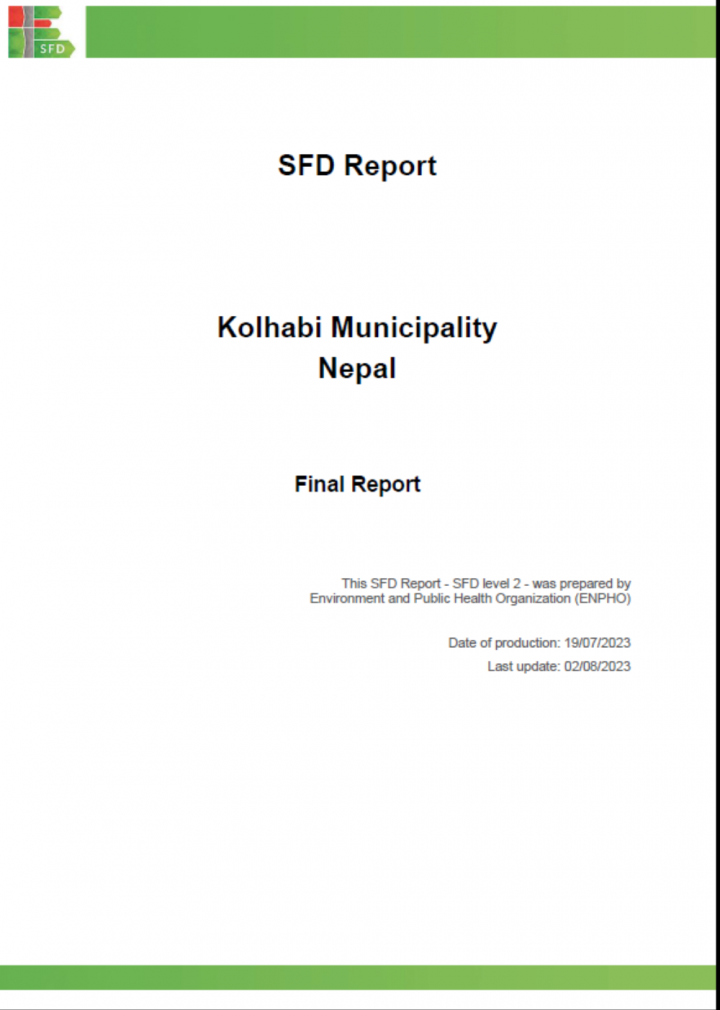SFD (level 2) Report - Kolhabi Municipality, Nepal ENPHO (2023)
Kolhabi Municipality is situated in Bara District of Madhesh Province in the southern region of Nepal. It is divided into 11 wards and covers an area of 157.40 sq. km. It was restructured by merging the already-existing Kolhabi, Sapahi, Prasauna, Kakadi, Amab, Bachhanpurwa, Rampurwa Village Development Committeees (VDCs) and some wards from VDCs Sinhasani (wards 1 and 2), Haraiya (ward 6), Karaiya (ward 8) and Sihorwa (ward 5). A population of 51,182 is residing in 10,561 households in the municipality. It has an annual population growth rate of 1.6%.
Kolhabi Municipality District was declared open defecation free (ODF) on June 25, 2018. However, 4% of households do not have toilets whereas 96% of households have the coverage of improved sanitation facility. The households without improved sanitation facility opt for open defecation. About 1% of households with improved sanitation facilities rely on offsite sanitation systems and 95% rely on onsite sanitation systems. The municipality does not have a sewer network and thus, the households with offsite sanitation system have their toilets connected to water bodies.
The SFD graphic shows that excreta generated from 30% of the population are safely managed while 70% are unsafely managed. The safely managed excreta generated from 26% of the population is temporary since the containments have not been emptied. Once the containments start to fill, the proportion of not emptied FS will be unsafely managed under the current practice of Faecal Sludge Management (FSM).
Bibliographic information
ENPHO (2023). SFD (level 2) Report - Kolhabi Municipality, Nepal ENPHO
Filter / Tags
Politicians and local decision makersPractitionersEnglishSFD Report
Downloads

Published in: 2023
Pages: 51
Publisher:
ENPHO
Author(s):
ENPHO
Uploaded by:
GIZ
Deutsche Gesellschaft für Internationale Zusammenarbeit (GIZ) GmbH
